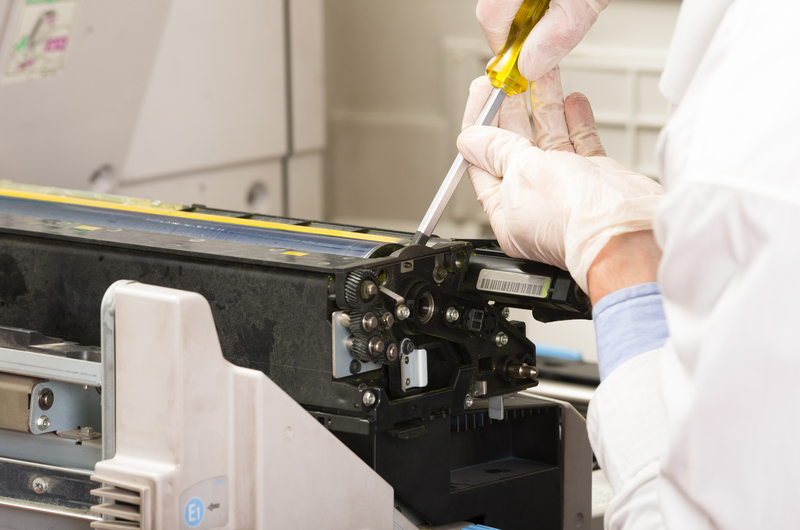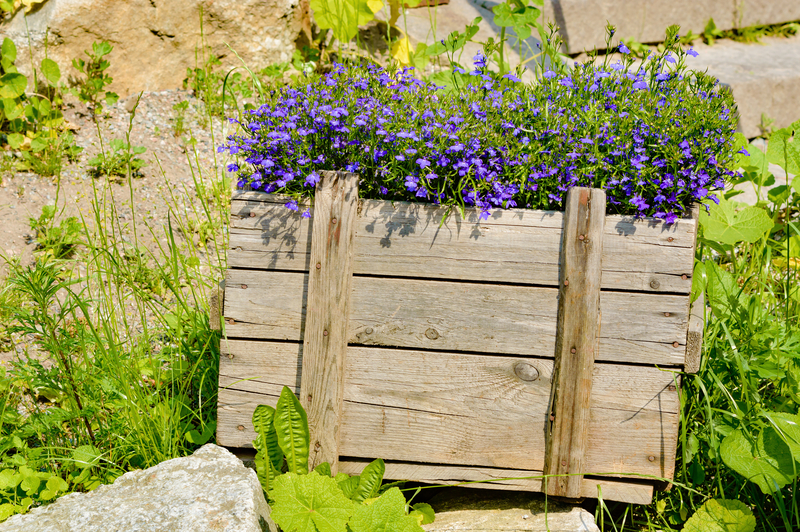De-cluttering: Your Path to Stress Relief and Inner Peace
In our busy, modern lives, clutter can seem like an unavoidable reality. From overflowing closets to overloaded schedules, clutter invades not just our physical spaces, but also our minds. The quest for inner peace and stress relief often seems elusive, but there is a simple, powerful solution: de-cluttering. This process is more than just tidying up--it's about creating harmony, organization, and calm in your surroundings. Discover how decluttering your home, office, and mind can transform your well-being and bring you peace.
Understanding the Connection: Clutter, Stress, and Mental Health
Many scientific studies have revealed a strong link between clutter and increased stress levels. Visual chaos overstimulates our senses, making it hard to relax, focus, or even sleep. Over time, this persistent tension can drain your energy and chip away at your sense of control. When your environment feels out of order, it's common to feel overwhelmed and anxious.
- Sensory Overload: Messy spaces bombard your brain with unprocessed stimuli, raising cortisol--the stress hormone.
- Decision Fatigue: The more items you own, the harder it is to decide where things should go, what to keep, or what to wear.
- Emotional Baggage: Clutter often holds sentimental value or reminders of unfinished business, increasing anxiety.
By making a conscious effort to remove clutter and organize your surroundings, you signal to your brain that things are under control. This clarity and order naturally pave the way for mental peace and emotional balance.

Benefits of De-cluttering: Why It's Worth the Effort
De-cluttering is not just about having a more attractive living space; it's about transforming your entire life. Here are some compelling reasons to start your declutter journey:
1. Stress Relief and Enhanced Well-being
- Calms the Mind: Clean, organized spaces lessen mental chatter and help you think more clearly.
- Improves Mood: Studies show that tidy environments contribute to happiness and reduced depression.
- Better Sleep: A serene bedroom, free from excess, makes falling and staying asleep easier.
2. Boosted Productivity and Focus
- Removes Distractions: Less clutter means fewer visual cues competing for your attention.
- Saves Time: You'll waste less time looking for lost items or shuffling through unnecessary things.
- Encourages Creativity: Blank spaces give your mind room to wander and innovate.
3. Increased Self-Esteem and Achievement
- Sense of Accomplishment: Tackling even a small area can give you a boost of motivation and pride.
- Empowerment: Taking charge of your environment builds confidence in your ability to manage other aspects of life.
4. Improved Health and Safety
- Less Dust and Allergens: Fewer items on surfaces means less buildup and easier cleaning.
- Safer Spaces: Reduces the risk of trips, falls, and fire hazards.
Decluttering Your Home: Step-by-Step Guide
Ready to clear your physical surroundings for less stress and more peace? Here's a practical approach to home decluttering:
Step 1: Set Your Intention
Before starting, consider why you want to declutter. Are you seeking more productivity, a stress-free home, or simply hoping to feel lighter? Write your intention down and put it somewhere visible. This reminder will keep you motivated.
Step 2: Start Small
Trying to tackle your entire house in a day can be overwhelming. Pick one room, corner, or even a single drawer. Success builds momentum!
Step 3: Sort and Categorize
- Keep: Items you love and actually use.
- Donate/Sell: Functional items you don't use but could bless others.
- Trash/Recycle: Broken, expired, or irreparably damaged items.
Step 4: Organize and Assign a Home
Everything you keep should have a designated spot. Use bins, baskets, dividers, or labeled shelves to maintain order. Organization supports ongoing decluttering success.
Step 5: Maintain Regularly
Clutter creeps back in if left unchecked. Make it a habit to assess your spaces monthly. When you bring something new in, try the "one-in, one-out" rule to keep balance.
Decluttering More Than Just Physical Space
The principles of decluttering can extend far beyond your living room or closet. True decluttering embraces all aspects of life--mental, digital, and emotional.
Declutter Your Mind
- Journaling: Write down worries, intentions, or gratitude lists to release mental clutter.
- Meditation: Everyday mindfulness helps silence racing thoughts and channels inner peace.
- Limit Multitasking: Focus on a single activity at a time for greater calm and efficiency.
Digital Decluttering
- Unsubscribe: Remove yourself from services, emails, or apps you don't actually use.
- Sort Files & Photos: Regularly organize and backup digital memories.
- Declutter Desktop & Devices: Keep only essential programs and files readily accessible. Archive or delete the rest.
Emotional Decluttering
- Let Go of Grudges: Holding onto past hurts is mental clutter. Seek forgiveness or closure.
- Release Old Goals: If aspirations no longer fit your path, let them go to make space for new dreams.
- Surround Yourself with Positivity: Cultivate uplifting relationships and activities.
Tips for Sustainable Decluttering
Many people experience the "rebound" effect after major decluttering--spaces start to fill up with things again. Here are some proven habits for lifelong organization:
- Adopt the "One-In, One-Out" Rule: Whenever you acquire something new, let go of an old item.
- Practice Mindful Purchasing: Only buy items you truly need, love, and have room for.
- Schedule Regular Reviews: Set reminders to reassess your spaces quarterly or annually.
- Use Containers and Labels: Organized bins make it easy to find and transport items--and limit how much you keep.
- Share the Load: Make decluttering a collaborative effort with family or housemates.
Decluttering Mistakes to Avoid
Decluttering isn't always easy, and pitfalls are common. Recognizing these can help you stay on track to lasting inner peace:
- "Out of Sight, Out of Mind" Storage: Stuffing items in the attic, basement, or garage just relocates clutter.
- Being Overly Sentimental: It's okay to keep a few mementos, but too many can block progress.
- All-or-Nothing Thinking: Progress, not perfection, is the goal.
- Comparison: Focus on your pace and needs, not what others are doing.
How Decluttering Contributes to Inner Peace
True inner peace begins within but is powerfully shaped by external factors. Decluttering fosters tranquility in multiple ways:
- Invites Mindfulness: A neat, minimal space directs awareness to the present moment.
- Supports Self-Care: Organized environments encourage routines for wellness, sleep, and relaxation.
- Frees Time & Energy: With less "stuff," daily tasks take less effort, freeing you to focus on passions or loved ones.
- Represents Self-Respect: Caring for your space sends a powerful message of self-worth to your subconscious.
Many spiritual and philosophical traditions--from Zen Buddhism to Scandinavian Hygge--emphasize the value of simplicity. Paring down possessions is often a stepping-stone toward living with intention. When excess is eliminated, what remains are only the pieces of your life that matter most.
Frequently Asked Questions About Decluttering
1. How do I start decluttering when I'm overwhelmed?
Begin with a tiny, manageable task. Set a timer for 10 minutes and tackle a single drawer or shelf. Celebrate your progress and gradually increase the scope as you gain confidence.
2. How often should I declutter?
Decluttering is ongoing. Practice a brief reset each month or do a deeper clean a few times a year. Major life transitions--moving, changing jobs, etc.--are also ideal times for a fresh start.
3. Should I throw away sentimental items?
Keep a few meaningful mementos in a special box, but avoid letting sentimentality block your progress. Take photos of cherished but bulky items before letting them go.
4. Can decluttering really help my mental health?
Absolutely. Numerous studies show that clean, organized spaces lead to lower cortisol levels, increased happiness, and a greater sense of control. Combined with other self-care habits, decluttering can be a cornerstone of mental well-being.

Empowering Quotes to Inspire Your De-cluttering Journey
- "The first step in crafting the life you want is to get rid of everything you don't." -- Joshua Becker
- "Have nothing in your house that you do not know to be useful, or believe to be beautiful." -- William Morris
- "Simplicity is the ultimate sophistication." -- Leonardo da Vinci
- "Decluttering is infinitely easier when you think of it as deciding what to keep, rather than deciding what to throw away." -- Francine Jay
Conclusion: Embrace Decluttering for Lifelong Peace and Joy
Decluttering is a journey, not a one-time event. Each step you take--however small--is an act of self-nurturing that moves you closer to stress relief and inner peace. As you release the physical, digital, and emotional baggage you've been carrying, you make room for new opportunities, experiences, and serenity.
Start today. Choose one area to declutter and savor the feeling of lightness that follows. In the language of minimalism, less truly is more--a peaceful, energized, and joy-filled more.
Transform your life and well-being by embracing the art and power of de-cluttering. Your path to stress relief and inner peace begins with a single, mindful step.